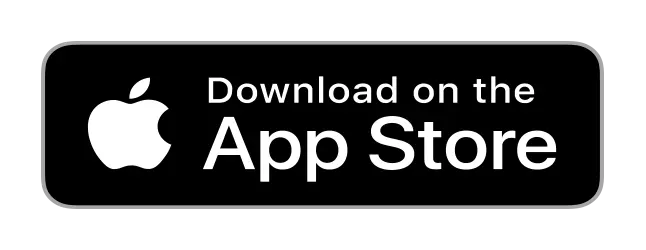
Running a small business requires juggling multiple responsibilities simultaneously. From managing clients and creating estimates to tracking expenses and scheduling jobs, the administrative burden can quickly overwhelm even the most organized entrepreneur. This is where comprehensive business management apps become invaluable tools for success.
The right management app can streamline operations, reduce manual tasks, and provide insights that drive better business decisions. However, with countless options available, identifying which features truly matter for your business can be challenging. After extensive research and analysis of successful small business operations, seven core features consistently emerge as essential for any effective management platform.
1. Comprehensive Estimate and Quote Creation
Professional estimates serve as the foundation of successful client relationships and profitable projects. A robust estimate creation feature should allow you to build detailed, customized quotes that accurately reflect your services and pricing structure.
The best estimate tools provide templates that can be tailored to different service types while maintaining brand consistency. Look for apps that support multiple pricing models, including flat rates, hourly billing, and material costs. The ability to include detailed line items, descriptions, and terms ensures transparency with clients and reduces misunderstandings later in the project.
Advanced estimate features should include automatic calculations for taxes, discounts, and markup percentages. This automation eliminates mathematical errors that could impact profitability or create awkward conversations with clients. Additionally, the ability to save frequently used items, services, or packages as templates dramatically speeds up the quote creation process for similar projects.
Mobile accessibility is crucial for estimate creation, as many service professionals need to provide quotes on-site. The app should allow you to create, modify, and send estimates directly from your smartphone or tablet, complete with digital signatures for immediate approval.
Integration with your existing business processes is equally important. Estimates should seamlessly convert to invoices once approved, maintaining all relevant details and eliminating duplicate data entry. This workflow continuity saves time and ensures accuracy throughout the entire project lifecycle.
2. Intelligent Job Scheduling and Calendar Management
Effective scheduling capabilities form the backbone of service-based businesses. A sophisticated scheduling system goes beyond basic calendar functionality to provide intelligent resource allocation and conflict prevention.
The scheduling feature should offer multiple view options, including daily, weekly, and monthly perspectives, allowing you to plan both immediate tasks and long-term projects. Color coding and categorization help quickly identify different job types, priority levels, or team members responsible for specific tasks.
Advanced scheduling tools incorporate travel time calculations, ensuring realistic time blocks between appointments. This prevents the common problem of overbooking or arriving late to client locations due to insufficient travel time allowances.
Automated scheduling suggestions based on location proximity, job type, and resource availability can significantly improve efficiency. The app should analyze your existing schedule and recommend optimal time slots for new appointments, maximizing productivity while minimizing travel costs.
Client communication integration within the scheduling system streamlines appointment management. Automatic appointment confirmations, reminders, and rescheduling notifications keep clients informed while reducing no-shows and last-minute cancellations.
For businesses with multiple team members, the scheduling system should support resource allocation and availability tracking. This ensures the right person with appropriate skills is assigned to each job while preventing double-booking of personnel or equipment.
3. Automated Invoicing and Payment Processing
Cash flow management is critical for small business survival, making efficient invoicing and payment processing essential features. Automated invoicing eliminates the time-consuming task of manually creating bills while ensuring consistent payment collection.
The invoicing system should automatically generate invoices based on completed work, approved estimates, or predetermined billing schedules. This automation ensures no billable work goes uninvoiced and maintains steady cash flow for your business.
Customizable invoice templates allow you to maintain professional branding while including all necessary business information and payment terms. The ability to add your logo, contact information, and specific payment instructions creates a cohesive brand experience for clients.
Multiple payment method support is crucial in the modern business environment. The app should facilitate credit card processing, bank transfers, and digital payment platforms, making it convenient for clients to pay promptly. Integrated payment processing eliminates the need for separate merchant accounts or third-party payment systems.
Automated payment reminders help maintain healthy cash flow without requiring constant manual follow-up. The system should send gentle reminders before due dates and escalating notices for overdue accounts, maintaining professional relationships while ensuring timely payment.
Payment tracking and reconciliation features provide clear visibility into outstanding invoices, partial payments, and completed transactions. This financial oversight helps identify potential cash flow issues before they become critical problems.
4. Comprehensive Expense Tracking and Financial Management
Understanding your business expenses is fundamental to maintaining profitability and making informed financial decisions. Comprehensive expense tracking goes beyond simple record-keeping to provide actionable insights into spending patterns and cost optimization opportunities.
The expense tracking system should support multiple input methods, including manual entry, receipt scanning, and automatic bank transaction imports. This flexibility ensures all business expenses are captured regardless of how they occur.
Categorization capabilities help organize expenses into meaningful groups such as materials, labor, travel, and overhead costs. Proper categorization simplifies tax preparation and provides insights into which expense categories consume the largest portions of your budget.
Project-specific expense allocation allows you to track costs associated with individual jobs or clients. This granular tracking helps determine true project profitability and informs future pricing decisions.
Mileage tracking is particularly important for service businesses that travel to client locations. The app should automatically calculate mileage deductions based on GPS data or allow manual entry with rate calculations for tax purposes.
Financial reporting capabilities transform raw expense data into meaningful insights. Look for apps that generate profit and loss statements, expense summaries, and trend analyses that help identify cost-saving opportunities and business growth patterns.
Integration with accounting software or tax preparation tools streamlines year-end financial processes. The ability to export expense data in standard formats eliminates duplicate data entry and ensures accuracy in financial reporting.
5. Centralized Client Management and Communication
Strong client relationships drive business success, making comprehensive client management capabilities essential for any business management app. A centralized client database serves as the foundation for personalized service and effective communication.
The client management system should store complete contact information, service history, preferences, and important notes about each client. This comprehensive profile enables personalized service delivery and helps build stronger business relationships.
Communication tracking within client profiles provides valuable context for all interactions. The system should log phone calls, emails, text messages, and in-person meetings, creating a complete communication history accessible to all team members.
Automated communication features enhance client relationships while reducing manual tasks. Birthday reminders, service anniversary notifications, and maintenance schedule alerts help maintain regular contact with clients and identify new business opportunities.
Client portal functionality allows customers to view their service history, outstanding invoices, and upcoming appointments. This self-service capability reduces administrative burden while providing clients with convenient access to their account information.
Review and feedback management helps monitor client satisfaction and identify areas for improvement. The app should facilitate review requests, track feedback, and provide insights into client satisfaction trends.
Segmentation capabilities enable targeted marketing and communication efforts. The ability to group clients by service type, location, or value helps create more effective marketing campaigns and service offerings.
6. Robust Business Analytics and Reporting
Data-driven decision making separates successful businesses from those that struggle to grow. Comprehensive analytics and reporting capabilities transform your business data into actionable insights that drive strategic decisions.
Revenue analytics provide clear visibility into income trends, seasonal patterns, and growth opportunities. The system should track revenue by time period, service type, and client segment, helping identify the most profitable aspects of your business.
Performance metrics help monitor key business indicators such as conversion rates, average job value, and client retention rates. These metrics provide objective measures of business health and highlight areas requiring attention.
Productivity analytics reveal insights into operational efficiency, including job completion times, scheduling optimization, and resource utilization. This information helps identify bottlenecks and opportunities for process improvement.
Financial health indicators such as profit margins, expense ratios, and cash flow trends provide early warning signs of potential problems. Regular monitoring of these metrics enables proactive business management rather than reactive problem-solving.
Customizable dashboards allow you to focus on the metrics most relevant to your business goals. The ability to create personalized views of key performance indicators ensures important information is always readily accessible.
Comparative reporting enables analysis of performance over different time periods, helping identify trends and measure the impact of business changes. Year-over-year comparisons, seasonal analysis, and growth tracking provide valuable context for strategic planning.
7. Mobile Accessibility and Offline Functionality
Modern business management requires flexibility and accessibility from any location. Mobile optimization and offline functionality ensure you can manage your business effectively whether you're in the office, at a client site, or traveling between appointments.
Native mobile apps provide superior performance and user experience compared to web-based alternatives. The mobile app should offer full functionality, not just basic features, ensuring you can complete any business task from your smartphone or tablet.
Offline functionality is crucial for businesses operating in areas with unreliable internet connectivity. The app should allow you to create estimates, update job information, and track expenses even without an internet connection, automatically syncing data when connectivity is restored.
Cross-device synchronization ensures information consistency across all platforms. Changes made on your mobile device should immediately appear on your desktop application and vice versa, preventing confusion and data inconsistencies.
Mobile-optimized interfaces account for smaller screen sizes and touch-based navigation. The mobile experience should be intuitive and efficient, not a cramped version of the desktop interface.
Location-based features leverage mobile device capabilities to enhance functionality. GPS integration can automatically track mileage, provide directions to client locations, and suggest optimal routing for multiple appointments.
Push notifications keep you informed of important business events such as new client inquiries, payment receipts, or upcoming appointments. Customizable notification settings ensure you receive relevant alerts without being overwhelmed by unnecessary interruptions.
Integration and Scalability Considerations
While the seven core features outlined above form the foundation of effective business management, additional considerations ensure your chosen app will grow with your business and integrate with your existing tools.
Third-party integrations expand functionality by connecting with specialized tools you may already use. Look for apps that integrate with accounting software, email marketing platforms, and industry-specific tools relevant to your business.
Scalability features ensure the app can accommodate business growth without requiring a complete platform change. Consider user limits, storage capacity, and feature availability across different pricing tiers.
Data export capabilities provide flexibility and prevent vendor lock-in. The ability to export your business data in standard formats ensures you maintain control over your information regardless of future software decisions.
Security features protect sensitive business and client information. Look for apps that offer data encryption, secure authentication, and regular security updates to protect your business from cyber threats.
Making the Right Choice for Your Business
Selecting a business management app with these seven essential features will significantly improve your operational efficiency and business performance. However, the specific implementation and user experience of these features varies significantly between different platforms.
Consider starting with a free trial to evaluate how well the app's features align with your specific business needs and workflows. Pay attention to the learning curve required for you and your team to become proficient with the system.
The investment in a comprehensive business management app pays dividends through improved efficiency, better client relationships, and enhanced profitability. By focusing on these seven must-have features, you'll be well-equipped to choose a platform that supports your business growth and success.
Remember that the best business management app is one that you and your team will actually use consistently. Features are only valuable if they're accessible, intuitive, and integrated into your daily business operations. Take the time to evaluate options thoroughly and choose a platform that will serve as a foundation for your business growth and success.

